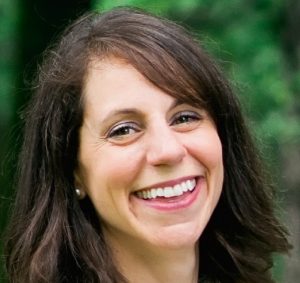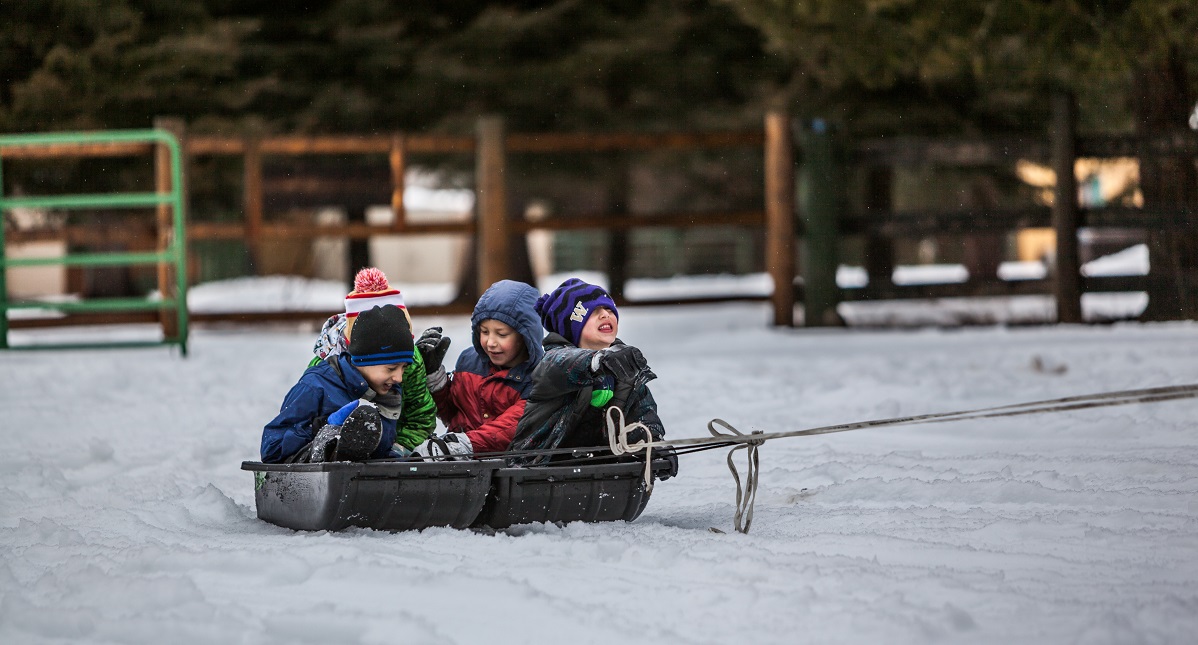Contact Us
It’s 9:00 a.m. on a snowy Saturday in February. My son, Kaleb, and I drive to a friend’s house for his first drop-off playdate. He’s beside himself with excitement. We pull in the driveway and see Kaleb’s friend, Ethan, waiting at the side door of his family’s Victorian home. As he spots our van, Ethan jumps up and down shouting Kaleb’s name through the glass. My boy clambers out of his seat and reaches for the sliding van door in one, swift movement as Ethan props open the storm door to usher Kaleb in from the cold. The boys can’t get to each other fast enough. My eyes fill with grateful tears. This is a big moment. This is a grateful heart.
You see, my son, Kaleb, has Down syndrome. While he has two older sisters who adore him and classmates who include him at school, he doesn’t often get invited to friends’ homes. He’s only eight, of course. We haven’t yet entered the phase of best buddies and sleepovers. So why do I worry?
When Kaleb was born, my husband, Mark, and I grieved many things we perceived he would never have: An independent life. A meaningful career. A family of his own. Even friendship. I know now that those fears were built on ideas about disability that our society had ingrained in us over the course of a lifetime. In time, we accepted the things we couldn’t change about Kaleb’s diagnosis and set misguided myths aside.
Still. I’ve prayed for years that our son would have friends and be a friend. Though he loves people, it’s not always easy for Kaleb to communicate his ideas or be understood. And sometimes, especially when a friend comes to our house, he’s not always gracious or fair. That’s when I start to doubt. Will Kaleb develop lasting friendships? Will his friends have the patience to stick by him?
The answer, so far, is yes. Kaleb’s friends love him because he is funny, imaginative and fearless, and because he likes playing the same things they do. They forgive his foibles just as he forgives theirs. The kids in Kaleb’s class have known him since he was five and was so little his feet didn’t touch the floor when he sat at his desk. They don’t carry a history of social stigma and low expectations when it comes to his disability. They understand his challenges, and their little voices regularly rise up to guide him or advocate on his behalf. More, they like him for who he is.
Our family works hard to make sure Kaleb knows he belongs. If you’re a parent of a child with special needs, take heart. Like us, you already know the ways it’s necessary to participate in all aspects of your child’s development. Friendship isn’t any different. Mark and I have learned to keep playdates short and that when a friend comes to play, one of us has to stay near the action. If conflict arises, we help Kaleb navigate social skills he’s still working on. Even though I don’t always feel like doing it, sometimes the best thing is to join in the fun. I’ve pitched and chased baseballs, pretended to eat playdough food at a “dessert cafe,” and been a secret agent imprisoned – and forgotten! – inside a hot play tent. The rewards are tangible. Friends leave happy asking if they can come again, and Kaleb learns important lessons about friendship, sharing experiences and building history with kids he enjoys and who enjoy him.
When Ethan’s mom, Christine, stopped me in the hallway at school the Friday before Kaleb went to their house to ask if he was free, I exclaimed, “Yes!” without hesitation. That evening as we worked out the details via text messaging, I asked her, “Do you want me to stay?”
“Either way,” she said.
“If I drop him off, are you comfortable with the extra supervision he might require?”
“Absolutely,” she replied. “You deserve a break. Enjoy it!”
It’s 11:00 a.m.; Christine sends me a text message as I leave my yoga class. “Is it OK if Kaleb stays longer? They’re having so much fun!” Under the message are photos she’s snapped of Kaleb and Ethan playing in a snowy tree fort, cozied side by side under its canopy. I peer at Ethan’s big, brown eyes next to Kaleb’s almond-shaped blue ones.
“Of course,” I text back, my heart full. Friendship is built on common interests and shared experiences, on mutuality and reciprocity. And there it is, captured in two boys’ bright eyes and happy smiles. That’s belonging. That’s friendship.
 Sara Korber-DeWeerd teaches creative writing, tutors and coordinates the online learning program at the Whitinsville Christian School in Massachusetts. She is passionate about shifting the narrative of disability in our culture and empowering young people to do good in their broken world. She and her family raise awareness and funding for people with disabilities through local organizations.
Sara Korber-DeWeerd teaches creative writing, tutors and coordinates the online learning program at the Whitinsville Christian School in Massachusetts. She is passionate about shifting the narrative of disability in our culture and empowering young people to do good in their broken world. She and her family raise awareness and funding for people with disabilities through local organizations.
